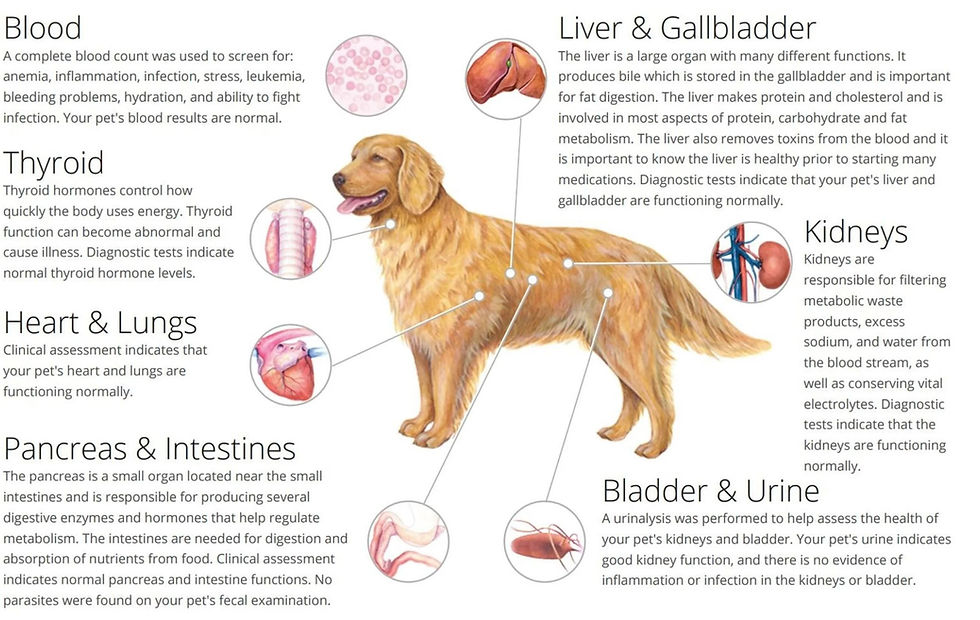Why Blood Work Is Essential for Your Pet’s Health
- Grand Haven Animal Hospital
- Jul 28, 2025
- 3 min read
As pet owners, we go above and beyond to make sure our furry friends are happy and healthy—feeding them the right food, providing exercise, and giving lots of love. But there’s one crucial part of pet healthcare that’s often overlooked until it’s too late: routine blood work.

Veterinarians recommend blood tests not just when your pet is sick, but also as part of regular wellness checks. Here’s why blood work is so important—and how it can be a lifesaver for your pet.
1. Early Detection = Better Outcomes
Pets are experts at hiding illness. By the time symptoms appear, the condition might already be advanced. Routine blood work can detect early signs of disease before your pet shows any visible symptoms. Conditions like kidney disease, liver problems, diabetes, and thyroid imbalances often begin silently—and catching them early can mean more effective treatment and a better quality of life.
2. Baseline Health Values
Annual or biannual blood tests help your vet establish what’s normal for your pet. These baseline values are invaluable if your pet becomes ill or injured in the future. Having past results to compare to makes it easier for your vet to spot abnormalities quickly.
3. Safe Anesthesia and Surgery
Before any procedure requiring anesthesia—whether it’s a dental cleaning or surgery—blood work is critical. It ensures your pet’s organs are functioning well enough to safely process anesthesia. Testing also checks for clotting issues or hidden infections that could complicate recovery.
4. Senior Pets Need Extra Monitoring
As pets age, their risk of health issues increases. Senior pets (typically over age 7 for dogs and cats) should have blood work done more frequently—often every 6–12 months. This helps catch age-related diseases early and allows your vet to adjust their care plan as needed.
5. Medication Monitoring
If your pet is on long-term medications (for example, for heart conditions, seizures, or arthritis), blood work helps ensure the drugs are working and not causing harm. It allows your vet to fine-tune dosages and catch any side effects before they become serious.
6. Peace of Mind for Pet Parents
Sometimes, you just know something feels off, even if your pet’s acting normal. Blood work provides an inside look at what’s going on, offering reassurance or guiding your vet toward a diagnosis. It’s an important step in being proactive about your pet’s well-being.
What’s in a Typical Blood Panel?
A standard veterinary blood panel usually includes:
CBC (Complete Blood Count): Assesses red and white blood cells and platelets to detect infection, inflammation, anemia, and more.
Chemistry Panel: Evaluates organ function (kidneys, liver, pancreas), electrolyte balance, and blood sugar levels.
Thyroid Tests: Especially important for older cats and dogs.
Heartworm and Tick-Borne Disease Tests: Often bundled into wellness screening.
Final Thoughts
Blood work might not be as visible as a wagging tail or a shiny coat, but it’s one of the most powerful tools in modern veterinary medicine. Investing in regular lab testing gives your pet the best chance at a long, healthy, and comfortable life.
So the next time your vet suggests a wellness screen—even if your pet seems perfectly healthy—know that it’s more than just a test. It’s a window into your pet’s inner health and a vital part of responsible pet care.







Comments